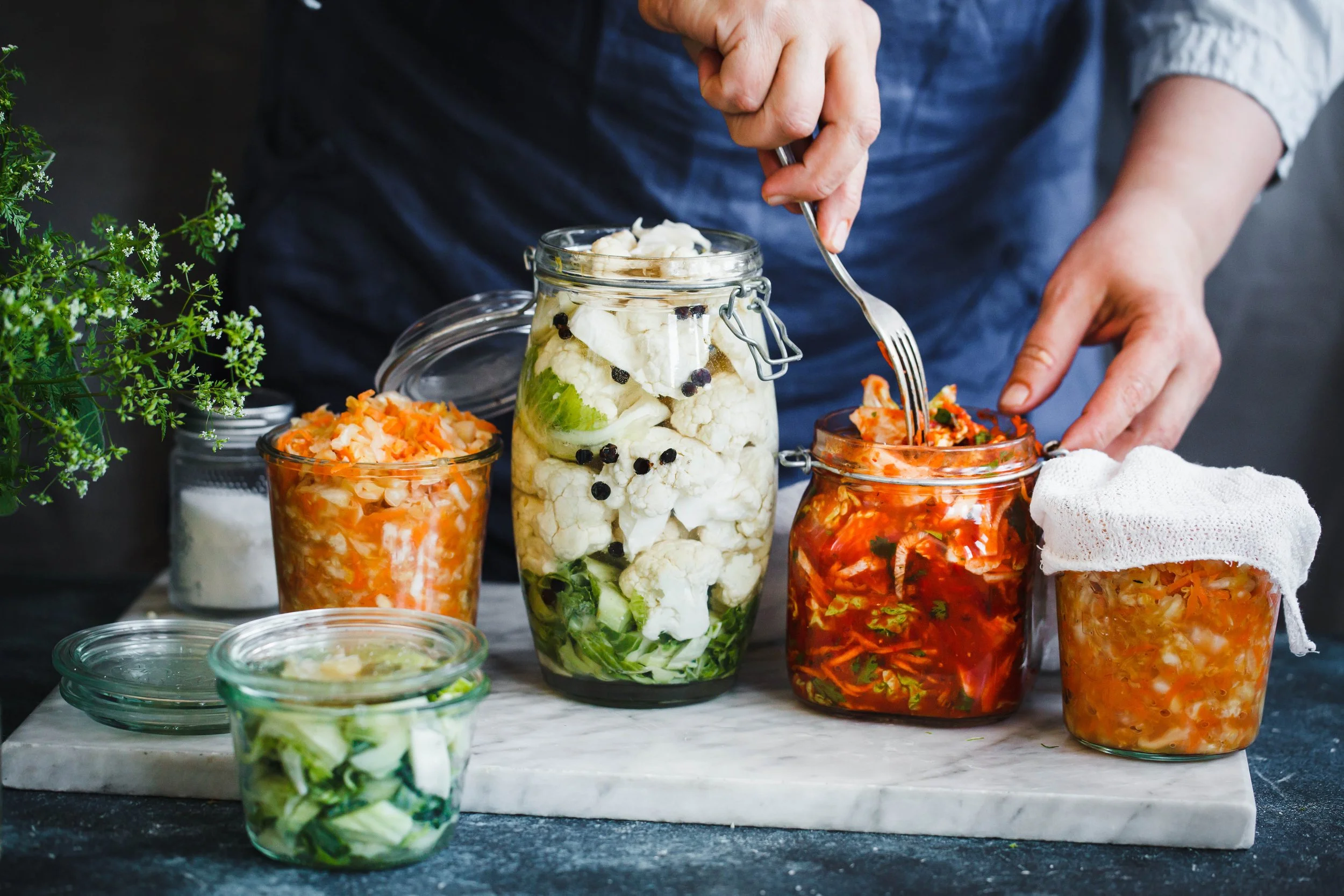Season 3, Episode 5:
The Science of Fermentation
The Science of Fermentation
Cooking is an art that leans into science. Time in the kitchen is an opportunity to teach a life skill and do some fun experiments, too. Today, Phoebe von Reis shares her insights on fermentation and how to make this kitchen activity an interesting one for the whole family. Plus, she gives her take on what makes a perfect sourdough.
MEET OUR GUEST
Phoebe von Reis
Phoebe von Reis started working in restaurants in her hometown of Inverness, California, at the age of 14. She continued restaurant work to put herself through university and beyond in New York City.
She loves cooking with her family — especially since opening up her children’s palates and culinary worldview by living in Italy while they were young and traveling throughout Europe and other parts of the world.
Phoebe has been teaching workshops in the art of fermentation for the past 15 years. She wild ferments both fruits and vegetables and loves sharing her knowledge with children and adults alike.
As a recipe developer, she has been featured in Martha Stewart Living as well as writing monthly articles for San Diego Home/Garden. She hopes you and your kids will feel encouraged to experiment with fermenting fresh produce!
Follow Phoebe:
Instagram: @phoebecornelia.co
show notes
Phoebe’s fermentation book recommendation: The Art of Fermentation, by Sandor Katz
Episode highlights
2:00 – Meet Phoebe von Reis
2:17 – What is fermentation?
5:19 – Fermentation as science
8:13 – Making sauerkraut
17:07 – Kitchen Questions
19:33 – Closing Thoughts
OUR FAVORITE QUOTES FROM THE EPISODE
“Every time I step into the kitchen, I think everything feels a little bit like a science experiment, because cooking with heat and fire, you're watching the molecular structure of things change, or maybe they melt or maybe they get crunchy, and I think it's fascinating.”
“With fermenting, there are so any different factors that can come into different outcomes, such as temperature, or I think people's ferments taste different, even just from what their own molecular biology is like, what lives on your hands or where you live.”
“I see it as not only a science, but also kind of as an art.”
“I think the simplest thing to do, which is really fun to do, that any kid enjoys doing is making a very simple batch of sauerkraut.”


